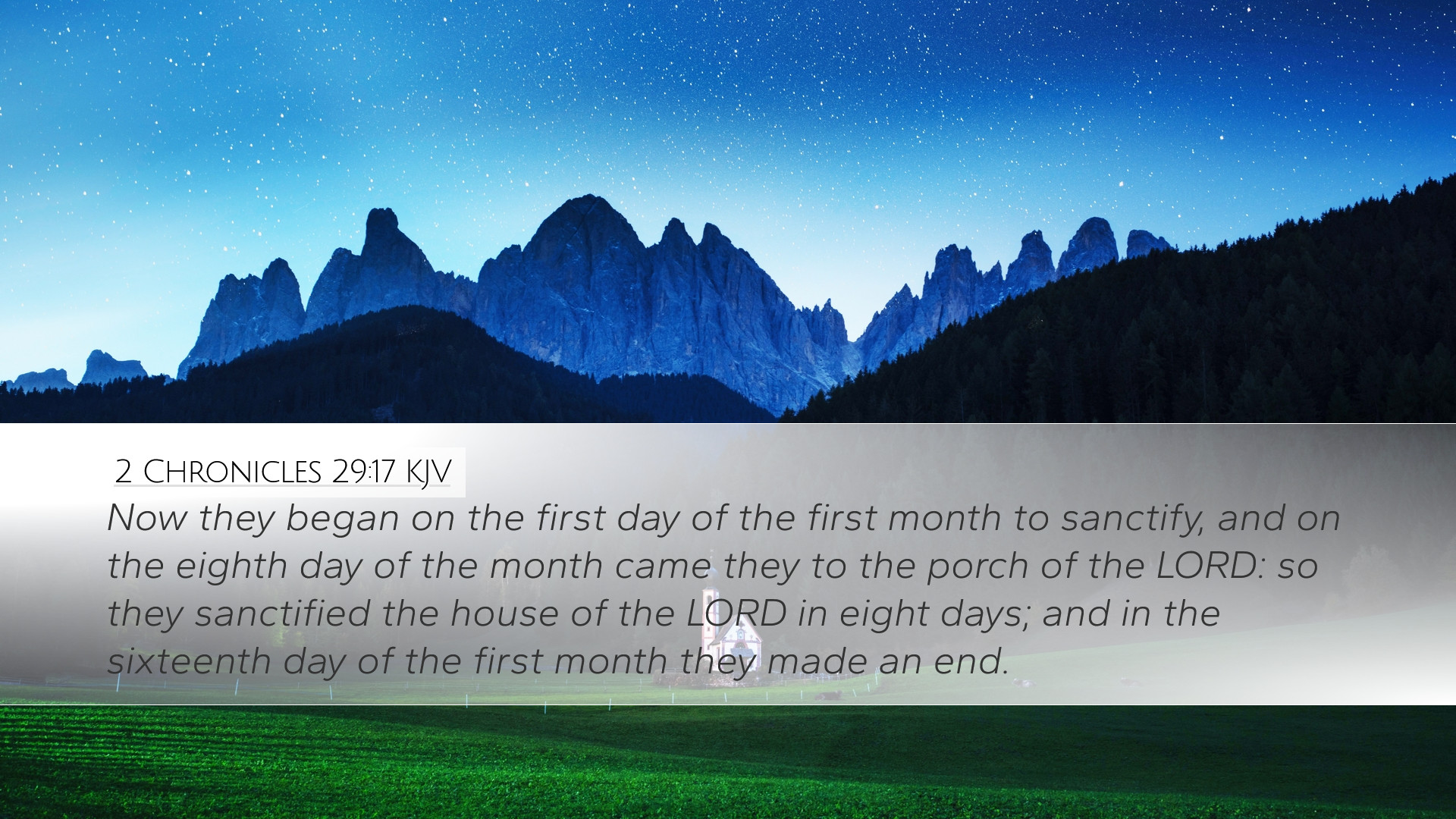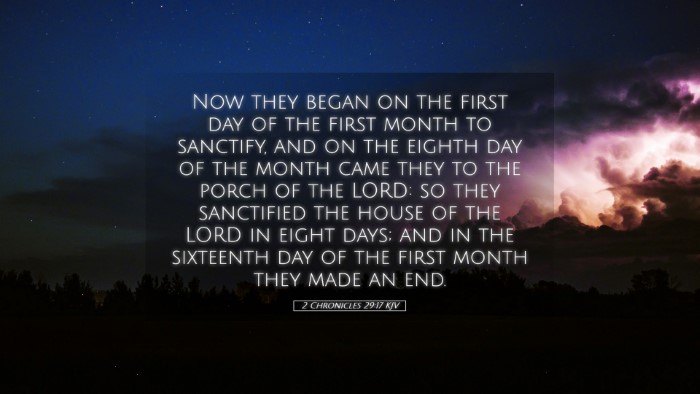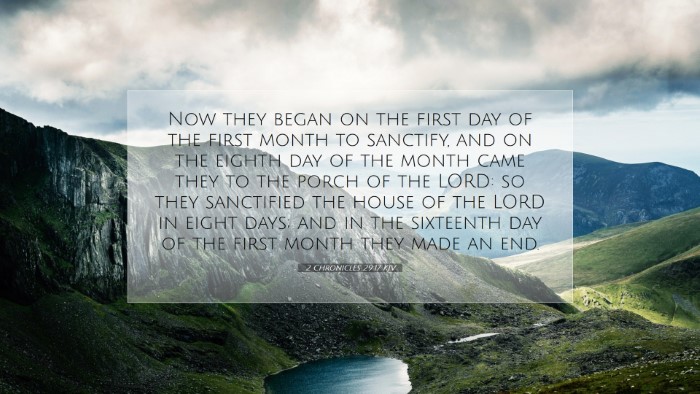Commentary on 2 Chronicles 29:17
Verse: “Now they began the sanctification on the first day of the first month, and on the eighth day of the month they came to the porch of the Lord; so they sanctified the house of the Lord in eight days; and on the sixteenth day of the first month they finished.”
Introduction
This verse is significant in the context of the religious reforms enacted by King Hezekiah. The act of sanctifying the temple reflects a pivotal moment in Judah's spiritual renewal, representing both a historical event and its deeper theological implications.
Contextual Background
The Book of 2 Chronicles focuses on the temple and the worship of God, particularly through the lens of the kings of Judah. Hezekiah stands out due to his determined efforts to restore proper worship and purge the nation of idolatry. This passage is central to understanding Hezekiah's reforms and their impact on the covenant community of Israel.
Historical Context
Hezekiah inherited a kingdom beset by idolatry and neglect of the temple. The previous reigns had allowed pagan practices to infiltrate worship, leading to a decline in spiritual fervor among the people. In 2 Chronicles 29, Hezekiah takes dramatic steps to reclaim and purify the worship of Yahweh.
Analysis of the Verse
Sanctification Process
According to Albert Barnes, the process of sanctification described indicates a deliberate and comprehensive approach to restoring the temple. The act itself symbolizes not only physical cleansing but also spiritual renewal—an intent to return the people to Yahweh’s covenant.
Symbolism of Time
Matthew Henry notes that the start of sanctification on the first day of the first month is significant, as it aligns with the Passover, a time deeply entrenched in Israel's history and identity. This detail emphasizes God’s faithfulness and His call to repentance and rededication. The eighth day signifies completion and a new beginning as they began their journey of restoration.
Completion and Commitment
Adam Clarke highlights that the completion of this process on the sixteenth day demonstrates a structured, strategic endeavor under Hezekiah’s leadership. The meticulous approach serves as a model for spiritual renewal; it requires dedication, time, and communal involvement, ensuring the work of the Lord is fulfilled in order.
Theological Implications
The sanctification of the temple serves as a reminder of God’s desire to dwell among His people in holiness. This verse encapsulates the key theme of restoration in the Old Testament, where restoration always offers a pathway back to covenant faithfulness, underscoring the nature of repentance and the merciful character of God.
Relevance to Contemporary Worship
For modern congregations, the actions of Hezekiah offer lessons on the necessity and power of corporate worship and the importance of setting apart time and spaces for God. This resonates with those involved in ministry, as it highlights the call to maintain a sanctified environment conducive to worship and spiritual growth.
Practical Applications
- Preparation for Worship: Just as the Israelites prepared the temple, contemporary believers are called to prepare their hearts and communities for genuine worship.
- Community Involvement: The entire nation participated in this sanctification process, illustrating the importance of collective commitment within the church.
- Value of Remembrance: Connecting contemporary worship with the biblical past allows for a richer, more profound understanding of God’s faithfulness.
Conclusion
In summary, 2 Chronicles 29:17 not only recounts a historical event but also provides a framework for understanding the nature of divine worship. The key takeaway is the need for believers to continuously strive for sanctification in their own lives and communities, fostering an environment that honors God and leads to true spiritual renewal.


